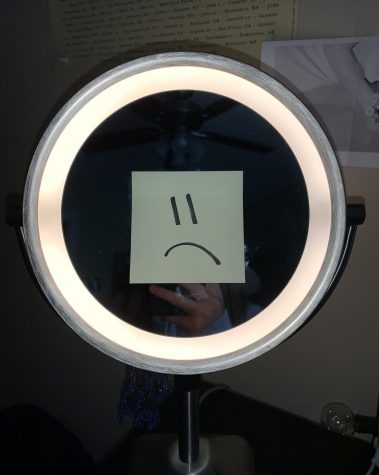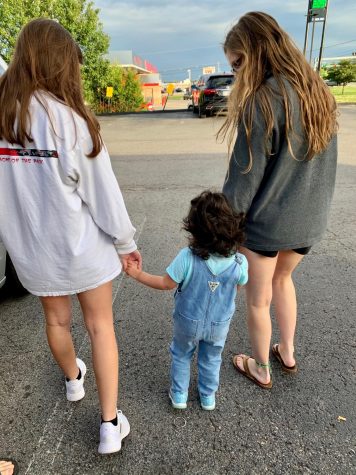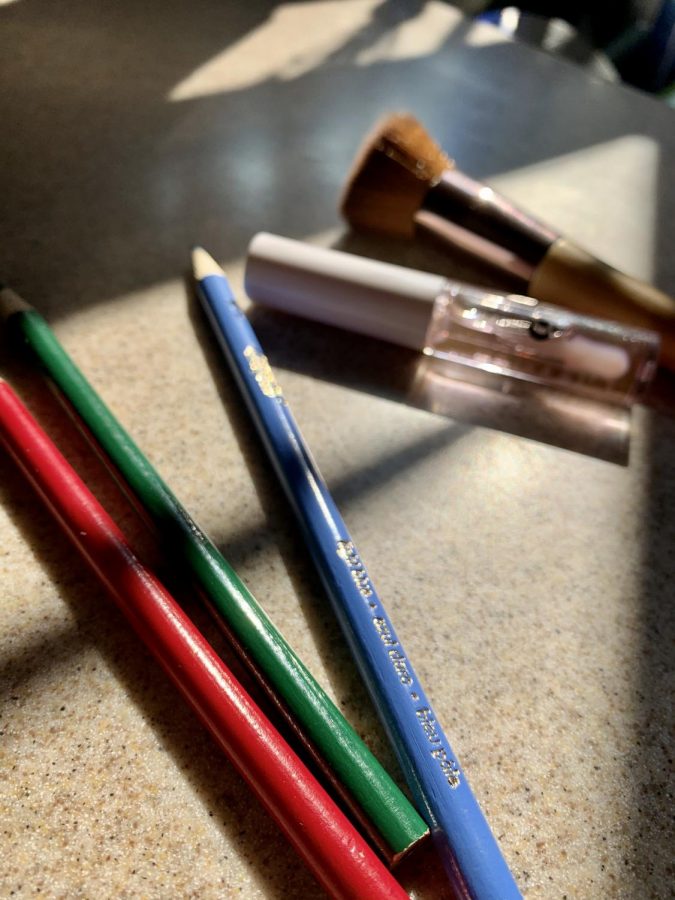The Message in “Cuties” No One Wants to Talk About
The discomfort of exploring social media effects on a pre-teen girl.
Makeup has replaced innocent creativity in younger girls today.
The movie “Cuties,” released on Netflix on September 9th, caused an uproar among concerned viewers that deafened the message behind the film. The big question of whether children should be allowed to act in a film that exploits their bodies and their image at such a young age overpowered the main point that preteen girls are sexualizing themselves for a world they shouldn’t be exposed to in the first place.
“Cuties,” originally titled “Mignonnes,” was written and directed by Maïmouna Doucouré, born and raised in Paris, France by her parents of Senegalese origin. In the movie, Amy (Fathia Youssouf) is an 11-year-old who, at the beginning of the movie, moves in with her mother and two younger brothers to an apartment in the projects of Paris. There she meets Angelica (Medina El Aidi-Azouni) and her dancing squad that calls themselves “the Cuties.”

Amy struggles internally throughout the film, stuck between her traditional Muslim family values and the short skirts and tight shirts that the Cuties sport all around school. She begins to give into to her curiosity and temptations and starts tying her shirts up just below her breasts to show some of her stomach.
Doucouré portrays many of her thoughts and opinions through Amy of when she was around that age. In a world where TikTok and Instagram are preteen’s main forms of communication, she found herself caught between the little girl she was, and the idealized woman society was forming her to be.
“’Spend an hour on social media and you’ll see preteens — often in makeup — pouting their lips and strutting their stuff as if they were grown women,’ wrote Doucouré, the film’s director,” Washington Post reporter Monica Hesse writes.
The film highlights the daily fight that preteen girls go through because the ability to compare themselves to other girls their age is right at their fingertips 24/7. When it is so easy to see another 11-year-old girl on Instagram wearing makeup and revealing clothes, others will follow their lead without even understanding what they’re doing.
The problem seems to be even more prevalent in America than in other countries. Virginia Tech student Emily Stewart describes her experience growing up in Germany, where she believes nudity isn’t as sexualized as it is in America.
“In Germany, nudity and sexuality are embraced. Here in America, we wait until the 5th or 6th grade to even give our kids “the talk,” Stewart explains.
In America, and many other countries, we have made sexuality such a private topic that isn’t talked about. When it’s time for kids to learn about their bodies and who they are becoming, we lock the doors, draw the blinds, and separate boys and girls. Maybe it’s time to think about the consequences our children face from our own decisions.
Over time, this may have created the pressure for young girls to grow up so fast. When they finally learn about who they are supposed to become, they dive straight into that world without a second thought. Everything is new, and they want to experience all of it instantly.

The main question that is brought up surrounding this movie: should children be allowed to exploit themselves on film, and should Netflix promote a movie with graphic scenes of children? As soon as the movie was released on Netflix, the public was outraged, claiming that it was fueling the child pornography industry and providing video content for pedophiles.
Ohio Attorney General, Dave Yost, Florida Attorney General, Ashley Moody, Louisiana Attorney General, Jeff Landry and Texas Attorney General, Ken Paxton, sent a joint letter to Netflix CEO Reed Hastings saying that “Cuties” is “fodder for those with criminal imaginations, serving to normalize the view that children are sexual beings.”
Yes, the movie showed explicit scenes of young girls dancing provocatively, but unfortunately, that is the reality of the world we live in.
When describing some of the controversial conversations held about the movie, Hesse wrote, “These are the kind of nuanced discussions that art is meant to encourage.”
Doucouré used her passion for film as a platform for change. Should she have gone to the lengths she did in the movie? Maybe so. Maybe that was what it will take to bring awareness and change to the world in which we’re raising our children.







Maria Montes • Oct 25, 2020 at 10:09 PM
I strongly believe we should discuss message of Cuties.
adviser • Oct 28, 2020 at 12:17 PM
umm thanks